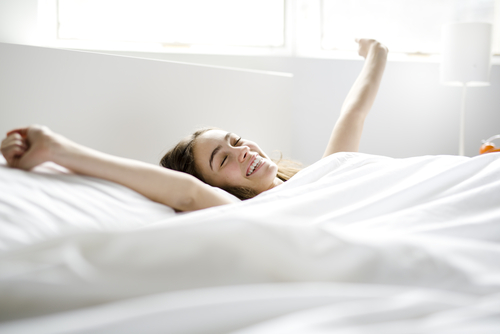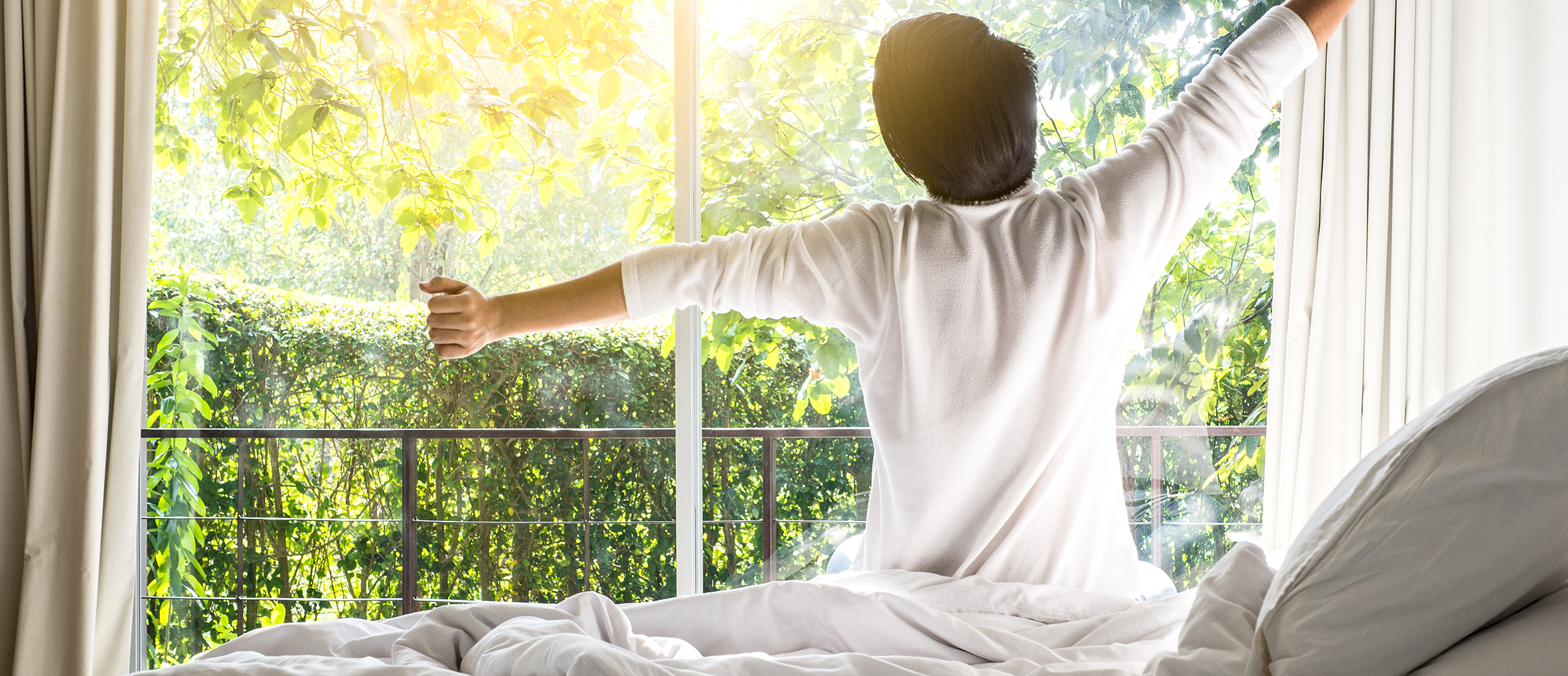Whether you’re going abroad or having a staycation, warm weather during our summer holiday can impact our sleep in more ways than we realise. This can in turn affect our mood and wellbeing during the day, and can even prevent us from enjoying our holiday. To help, Coast Road Furniture have put together some tips for ensuring you get enough high-quality rest, so you can concentrate getting the most out of your time away.
Prepare your sleeping environment
First things first, you’ll have to prepare your sleeping environment. Opening the windows to let cool air in is almost always better than using an AC unit or fan to control the temperature. However, if you suffer from hay fever or are in a noisy area, you may prefer to keep your windows closed. Secondly, ask to swap your duvet for one with a lighter tog if possible — that way, you can stay cosy without overheating. You should also consider whether the nightwear you bring with you is made from lightweight materials, as moisture-wicking cotton and linen are ideal for sweaty summer nights.
One oft-forgotten aspect of summer is the lighter mornings and evenings. So, at this time of year, you might be more comfortable using a sleep mask to get as much rest as possible on your trip. Another tip for preparing your sleep environment is to unpack properly. It can be tempting to live out of your suitcase, but spending a few minutes unpacking and putting your belongings away when you first arrive can help you keep your room tidy. Clutter and mess can stress us out, even increasing our heartrate, which is why it’s more difficult to fall asleep in a messy bedroom. So, remember to tidy up in between activities on your holiday.

Eat and drink the right foods
Food can also have an effect of your sleep quality, but fortunately, there are lots of things you can eat while on vacation that will improve it. Many of these are delicious holiday staples, like fish and rice (paella, anyone?). Foods to avoid include those high in sugar, grease, and acidity. Eating late at night can be a bad idea too, particularly if you suffer from heartburn or if you choose to eat foods that are difficult to digest.
Alcohol can be devastating to our sleep health, as can too much caffeine, so try to keep your intake of these to a minimum if you can. This can be tough when on holiday, but sticking to your daily alcohol unit allowance and not drinking caffeine in the afternoon can make a big difference. You may feel like you’re falling asleep quicker when drinking a lot of alcohol, but the quality of your rest is what will be affected, and you’ll wake up feeling even more sluggish than normal — even if you don’t have a hangover.
It’s always important to stay hydrated, but it’s even more crucial in high temperatures. Remember to drink water as often as you can, and you’ll find your quality of sleep will improve too.
Establish a sleep schedule
Perhaps the most important thing you can do for your sleep health is to establish a sleep schedule. This can be tricky when on holiday with irregular bedtimes and other disruptions, but trying to stick as closely to your usual routine as possible should help you feel alert and energised enough to make the most of your time away. At the least, try to go to bed at the same time each night, and if there’s an activity you usually do before you go to sleep such as stretching or reading a book, make sure you do this on holiday too.
It may sound like a bad idea, but many people find that they sleep better at night if they have a siesta during the day. The trick to a healthy nap is to sleep for less than 30 minutes, as this means you’re less likely to enter the deep sleep stage of your sleep cycle and your nightly rest won’t be affected. This is why a short nap will make you feel recharged, whereas a long nap might make you feel groggy since you have started but not completed a sleep cycle.
– Alison Hughes, Interiors Director at Coast Road Furniture comments:
“A comfortable bed can make the world of difference to your sleep quality. If you suffer from insomnia or are sensitive to sleep disruption, then it might be worth calling the hotel and checking what kind of bed and mattress they provide before booking your holiday. Packing appropriate nightwear, a sleep mask, and some earplugs can help too if you have no control over your sleep environment.”





